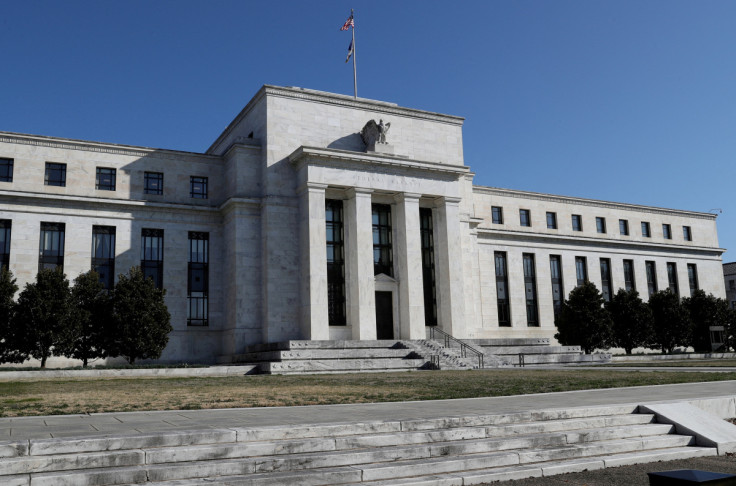U.S. Firms More Pessimistic About Economic Outlook, Fed Survey Shows

U.S. firms flashed mixed signals on the strength of the economy, inflation and labor demand in the month and a half before the Thanksgiving holiday and were more downbeat about the outlook, a Federal Reserve report showed on Wednesday, as the central bank struggles to bring down inflation without causing a recession.
The Fed released its snapshot on the economy's health, based on information from business contacts nationwide, as it prepares to slow the pace of interest rate hikes at its Dec. 13-14 policy meeting, with an eye to reaching a sufficiently high enough level to pause in the first half of 2023.
The U.S. central bank has driven up borrowing costs this year at the fastest pace since the early 1980s in a bid to dampen demand across the economy and, in turn, quash inflation that has been running at 40-year highs.
"Interest rates and inflation continued to weigh on activity, and many contacts expressed greater uncertainty or increased pessimism concerning the outlook," the Fed said in its survey, known as the "Beige Book," which was conducted across its 12 districts from mid-October through Nov. 23.
Economic activity posted modest gains in half of the central bank's districts, while in the other half it remained flat or showed slight-to-modest declines.
Fed Chair Jerome Powell earlier on Wednesday said the fight with inflation was far from over and that key questions remain unanswered, including how high rates will ultimately need to rise and for how long. A much-anticipated monthly measure of inflation is due to be released on Thursday.
Fed officials have been encouraged by recent data on price pressures for inputs and labor, which have provided glimmers of hope that inflation is slowing and may continue to do so. Nevertheless, the Fed's preferred measure shows inflation remains at a rate more than three times the central bank's 2% goal and shows no sign of waning quickly.
"Consumer prices rose at a moderate or strong pace in most districts," the Fed noted in regards to price pressures even as firms reported the speed of the increases slowed on balance. "Inflation was expected to hold steady or moderate further moving forward," the survey said.
MIXED LABOR PICTURE
There was a similarly mixed picture on the labor front where "hiring and retention difficulties eased further, although labor markets were still described as tight," the Fed's report said. Wage pressures increased at a moderate pace, although a few districts reported some easing, it said.
The Cleveland Fed district, for example, displayed the weakening in activity the central bank has hoped for but not yet the moderation in labor demand it also needs for it to feel confident in holding rates steady soon with the confidence that inflation will return to target.
"Business activity slowed modestly in recent weeks," the Fed said. "Still, firms continued adding to their payrolls, and stiff competition for workers kept upward pressure on wages. Input cost increases remained widespread."
That tallies with government data released earlier on Wednesday that showed job openings decreased in October but remained significantly high despite the Fed's aggressive efforts to tighten financial conditions. A separate government report showed the U.S. economy rebounded more strongly than initially thought in the third quarter.
The central bank's benchmark overnight lending rate currently sits in a target range of 3.75% to 4.00%. Investors overwhelmingly expect the Fed to raise that rate by half a percentage point at next month's meeting.
© Copyright Thomson Reuters 2024. All rights reserved.





















